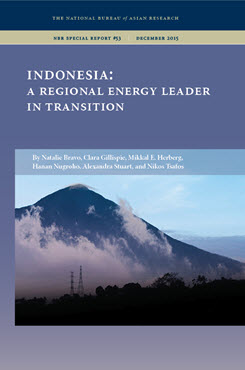Indonesia
The Nexus of Gas and Electricity
This essay examines the complicated nexus between natural gas and electricity in Indonesia and explores the importance of realizing the potential of gas in Indonesia’s energy mix to reduce an excessive reliance on coal for power generation.
EXECUTIVE SUMMARY
This essay examines the complicated nexus between natural gas and electricity in Indonesia and explores the importance of realizing the potential of gas in Indonesia’s energy mix to reduce an excessive reliance on coal for power generation.
MAIN ARGUMENT
Indonesia’s energy needs will grow markedly over the next two decades due to demographics and economic development. But the country’s energy system has a tendency to grow on the back of whichever domestic fuel is most abundant and affordable—which today is coal. As such, the government’s efforts to bring electricity to all Indonesians rests on an aggressive program of adding coal-fired generation capacity. In part, such reliance on coal is the inevitable byproduct of geography and the country’s resource endowment; yet it also reflects pessimism about how much natural gas can contribute to the electricity mix. If Indonesia is to avert the environmental and social catastrophe that will accompany a massive coal buildup, it needs to get natural gas right. This means reforming rules and regulations to unlock the country’s immense untapped natural gas potential.
POLICY IMPLICATIONS
- At a time when countries are intensifying their efforts to limit carbon emissions, Indonesia is doubling down on coal and embarking on a large-scale program to add coal-fired power-generation capacity.
- Indonesia has considerable untapped resources of conventional and unconventional gas, and the full exploitation of those resources will reduce the need to rely so heavily on coal for the country’s power-generation needs.
- Indonesia can develop its natural gas resources only by embarking on an ambitious reform program that provides regulatory clarity, streamlines investment decisions, and provides the certainty that companies need to invest in the country.
Natalie Bravo is an independent consultant based in Asia.
Nikos Tsafos is President and Chief Analyst at enalytica.


